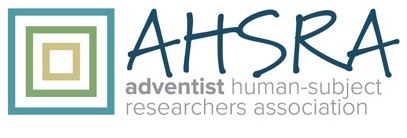Location
Andrews University, Buller Hall
Start Date
17-5-2018 5:00 PM
Description
Short Abstract
Religiosity and Acceptance of Rape Myths in Conservative Christian College Students
JORDANNE HOWELL-WALTON
Andrews University (KARL G.D. BAILEY, Faculty Sponsor)
WRITING AS A COMPLETED STUDY
Long Abstract
JORDANNE HOWELL-WALTON
NATHANEL TCHAMBA
BETHANY MORRISON
Title: Religiosity and Perceptions of Rape Myth in Conservative College Campuses Area: Social Psychology
Major Purpose
Freymeyer (1997) reported a positive correlation between religiosity and the acceptance of rape myth, especially among men who claimed to pray more (1997). Now that 20 years have passed, has the acceptance or rape myth changed for college students attending conservative Christian colleges? The purpose of our study was to examine whether there is a higher acceptance of rape myth in conservative Christian subcultures, especially for individuals who see themselves as being more religious. Twenty years ago, when Freymeyer conducted his study, he looked at religiosity in terms of prayer and other religious actions. We have decided to examine religion not only in actions, but as well as it’s intrinsic value to an individual and how that affects their acceptance of rape myth.
Procedure
We conducted this study at a conservative Christian college, using 173 subjects collected from an undergraduate research participation pool. Subjects completed two surveys in addition to a demographic questionnaire. The first addressed religious orthodoxy (Religious Orthodoxy Scale; Fullerton, 1982). The second measured rape myth acceptance (Illinois Rape Myth Acceptance Scale; Payne & Fitzgerald, 1999). Subjects completed the scales online through LimeSurvey. Data was analyzed using Pearson’s R looking for a relationship between religiosity and rape myth as a whole. We then used a relative importance metrics within a linear regression to identify which type of rape myths share the most variance with religious orthodoxy.
Results
We found the greatest amount of variance was between religiosity and the subscales: rape is trivial, it wasn’t rape, rape is deviant, and she lied.
Conclusion
In conclusion, the relationship between religiosity and the acceptance of rape myth as a whole showed a very small correlation. Some limitations we faced were only using subjects from one conservative college and the IRMA scales were biased in suggesting only women can be victims. Future research should focus on potentially running this study in another university associated with a different religion, or even universities of the same religion in different regions to see if location can also play a role in acceptance of rape myth. Further research into rape myth and culture and religion can help us to see if different subcultures see rape differently.
References
Freymeyer, R.H., (1997). Rape myths and religiosity. Sociological Spectrum 17, 473. doi:10.1177/0886260516665110
Fullerton, J.T., Hunsberger, B.,(1982). A unidimensional measure of christian orthodoxy. Journal for the Scientific Study of Religion, 21, 317-326. doi:10.2307/1385521
Payne, D.L., Lonsway, K.A., Fitzgerald, L.F.,(1999). Rape myth acceptance: Exploration of its measurement using the Illinois rape myth acceptance scale. Journal of Research in Personality, 33, 27-68. doi:10.1006/jrpe.1998.2238
P-07 Religiosity and Acceptance of Rape Myths in Conservative Christian College Students
Andrews University, Buller Hall
Short Abstract
Religiosity and Acceptance of Rape Myths in Conservative Christian College Students
JORDANNE HOWELL-WALTON
Andrews University (KARL G.D. BAILEY, Faculty Sponsor)
WRITING AS A COMPLETED STUDY
Long Abstract
JORDANNE HOWELL-WALTON
NATHANEL TCHAMBA
BETHANY MORRISON
Title: Religiosity and Perceptions of Rape Myth in Conservative College Campuses Area: Social Psychology
Major Purpose
Freymeyer (1997) reported a positive correlation between religiosity and the acceptance of rape myth, especially among men who claimed to pray more (1997). Now that 20 years have passed, has the acceptance or rape myth changed for college students attending conservative Christian colleges? The purpose of our study was to examine whether there is a higher acceptance of rape myth in conservative Christian subcultures, especially for individuals who see themselves as being more religious. Twenty years ago, when Freymeyer conducted his study, he looked at religiosity in terms of prayer and other religious actions. We have decided to examine religion not only in actions, but as well as it’s intrinsic value to an individual and how that affects their acceptance of rape myth.
Procedure
We conducted this study at a conservative Christian college, using 173 subjects collected from an undergraduate research participation pool. Subjects completed two surveys in addition to a demographic questionnaire. The first addressed religious orthodoxy (Religious Orthodoxy Scale; Fullerton, 1982). The second measured rape myth acceptance (Illinois Rape Myth Acceptance Scale; Payne & Fitzgerald, 1999). Subjects completed the scales online through LimeSurvey. Data was analyzed using Pearson’s R looking for a relationship between religiosity and rape myth as a whole. We then used a relative importance metrics within a linear regression to identify which type of rape myths share the most variance with religious orthodoxy.
Results
We found the greatest amount of variance was between religiosity and the subscales: rape is trivial, it wasn’t rape, rape is deviant, and she lied.
Conclusion
In conclusion, the relationship between religiosity and the acceptance of rape myth as a whole showed a very small correlation. Some limitations we faced were only using subjects from one conservative college and the IRMA scales were biased in suggesting only women can be victims. Future research should focus on potentially running this study in another university associated with a different religion, or even universities of the same religion in different regions to see if location can also play a role in acceptance of rape myth. Further research into rape myth and culture and religion can help us to see if different subcultures see rape differently.
References
Freymeyer, R.H., (1997). Rape myths and religiosity. Sociological Spectrum 17, 473. doi:10.1177/0886260516665110
Fullerton, J.T., Hunsberger, B.,(1982). A unidimensional measure of christian orthodoxy. Journal for the Scientific Study of Religion, 21, 317-326. doi:10.2307/1385521
Payne, D.L., Lonsway, K.A., Fitzgerald, L.F.,(1999). Rape myth acceptance: Exploration of its measurement using the Illinois rape myth acceptance scale. Journal of Research in Personality, 33, 27-68. doi:10.1006/jrpe.1998.2238



